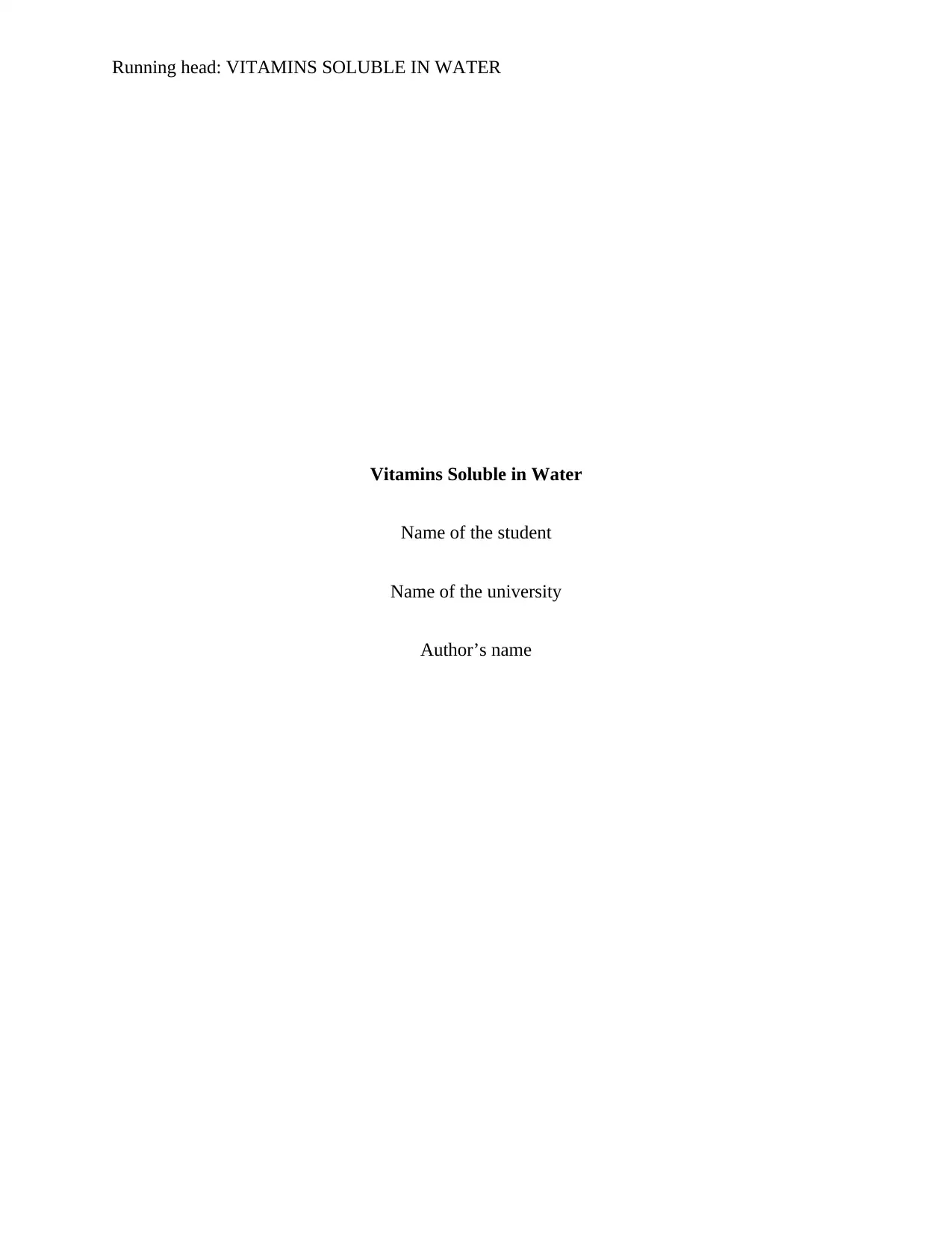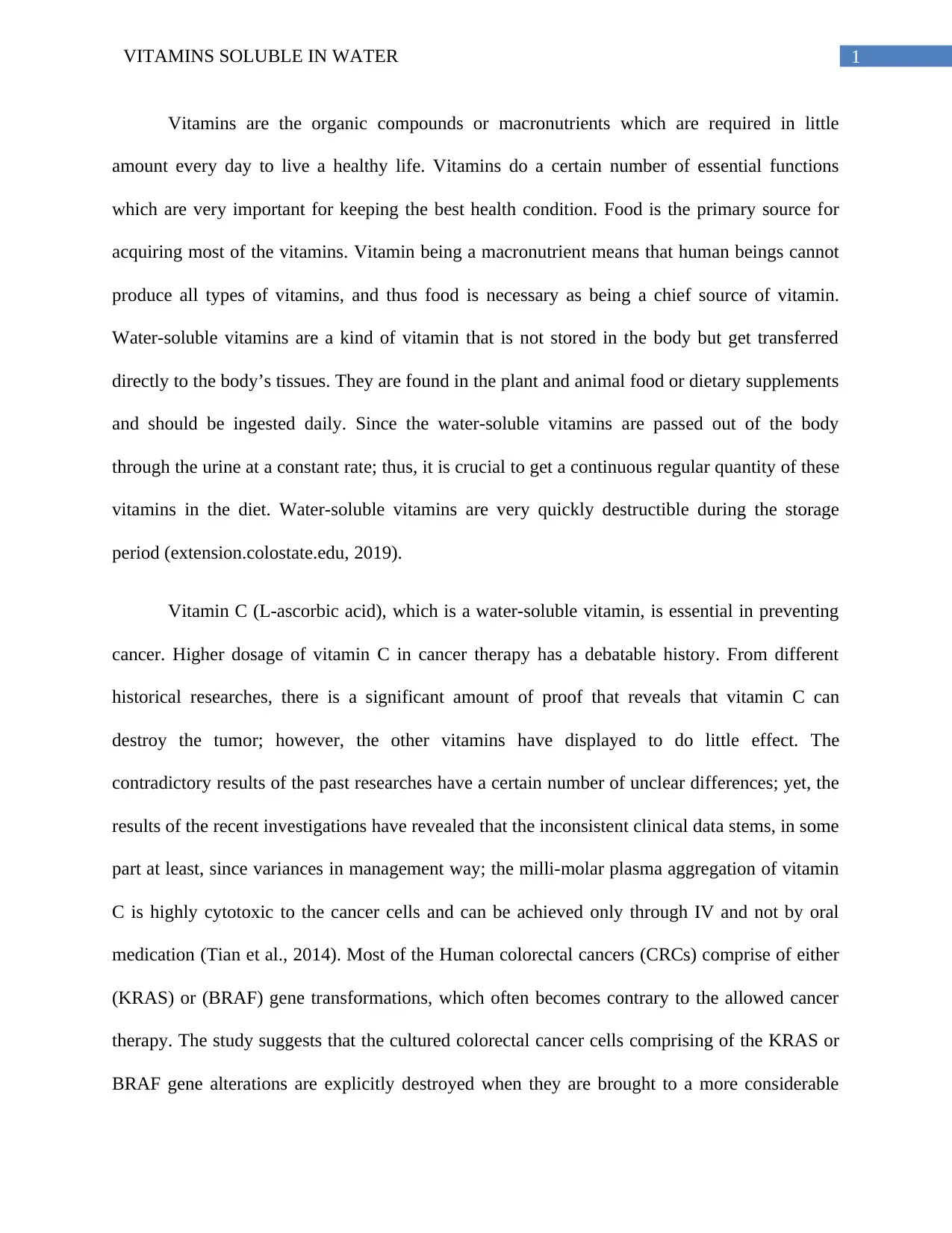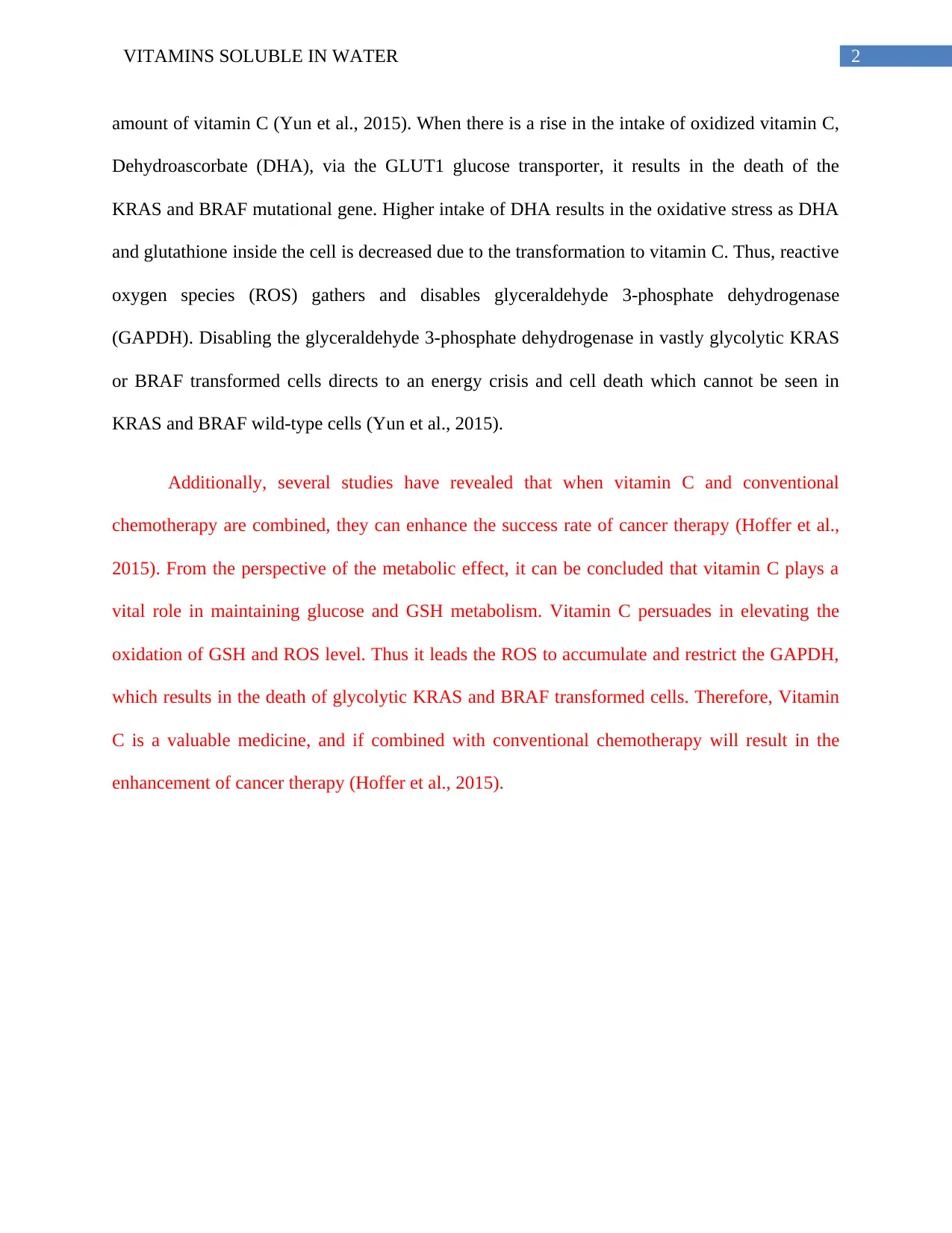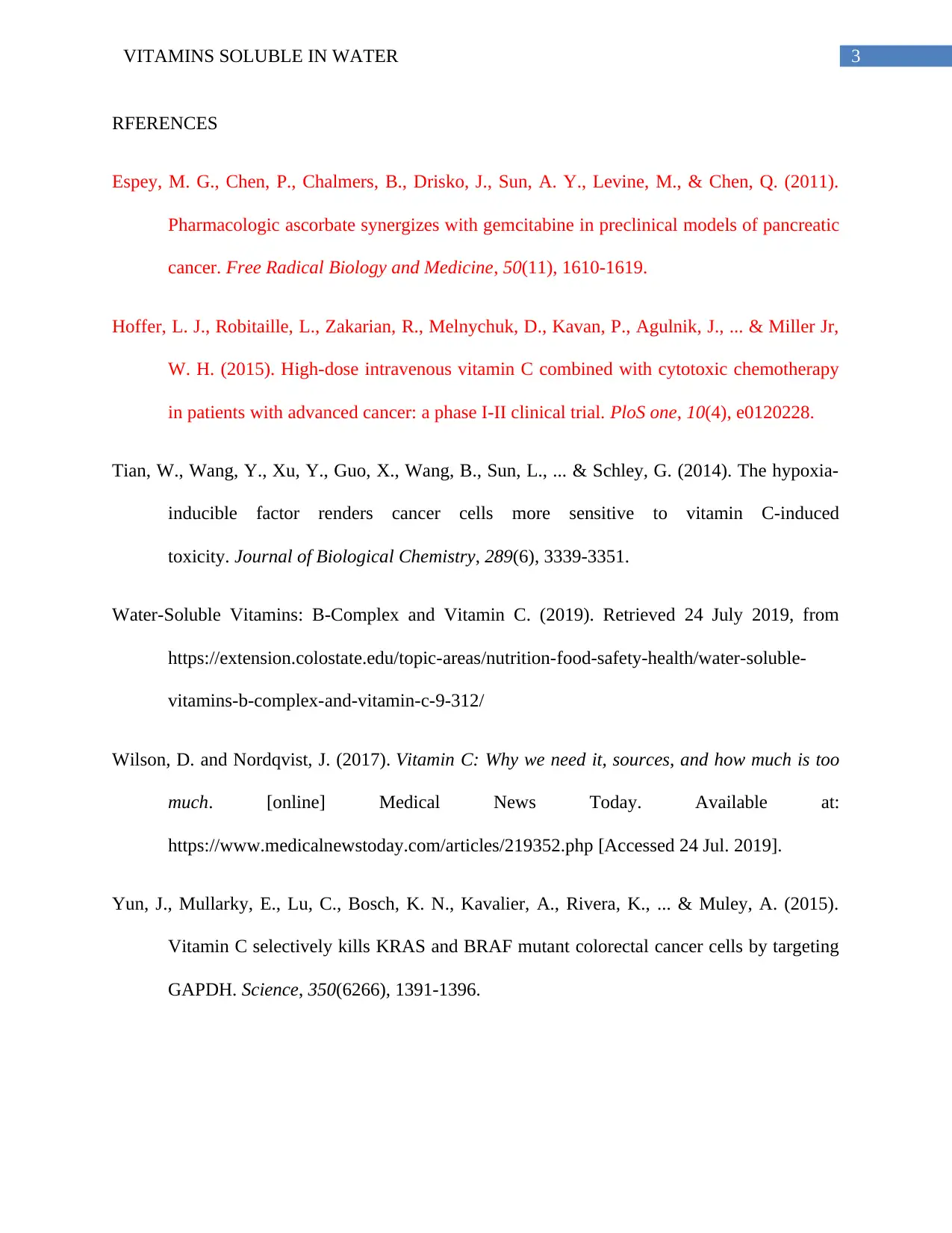Nutrition Report: Water-Soluble Vitamins and Cancer Treatment Analysis
VerifiedAdded on 2022/10/17
|4
|987
|14
Report
AI Summary
This report provides an in-depth analysis of water-soluble vitamins, with a specific focus on Vitamin C and its potential in cancer treatment. The report begins by defining water-soluble vitamins and their importance in maintaining good health, emphasizing that they are not stored in the body and must be consumed daily. It then delves into Vitamin C's role, discussing its debated history in cancer therapy and recent findings that show its cytotoxic effects on cancer cells, particularly when administered intravenously. The report highlights research on Human colorectal cancers (CRCs) and the impact of Vitamin C on KRAS and BRAF mutant cells. It explains the mechanisms by which Vitamin C, through the intake of oxidized vitamin C (DHA), leads to cell death by targeting GAPDH and creating an energy crisis in these cells. Furthermore, the report underscores the potential of combining Vitamin C with conventional chemotherapy to enhance cancer therapy success rates and concludes that Vitamin C is a valuable medicine for cancer treatment.
1 out of 4





![[object Object]](/_next/static/media/star-bottom.7253800d.svg)